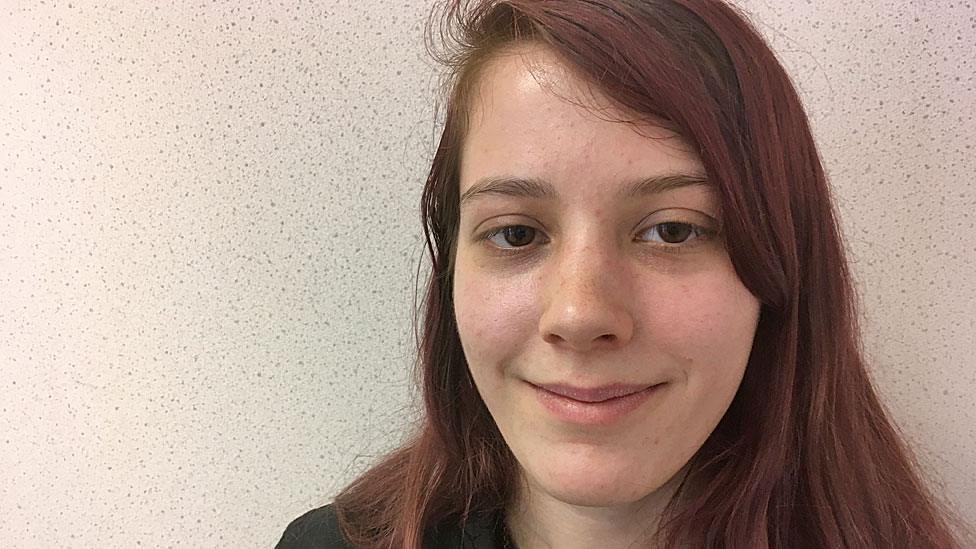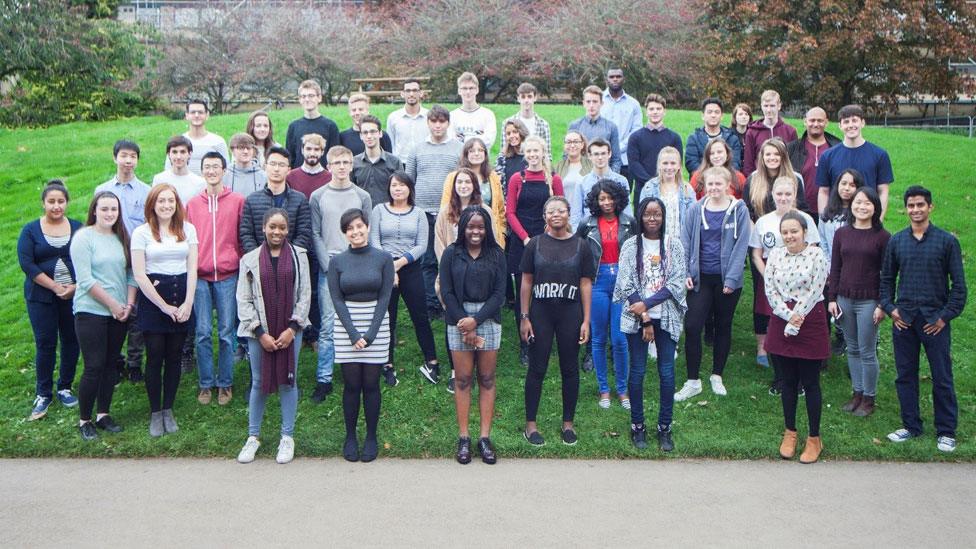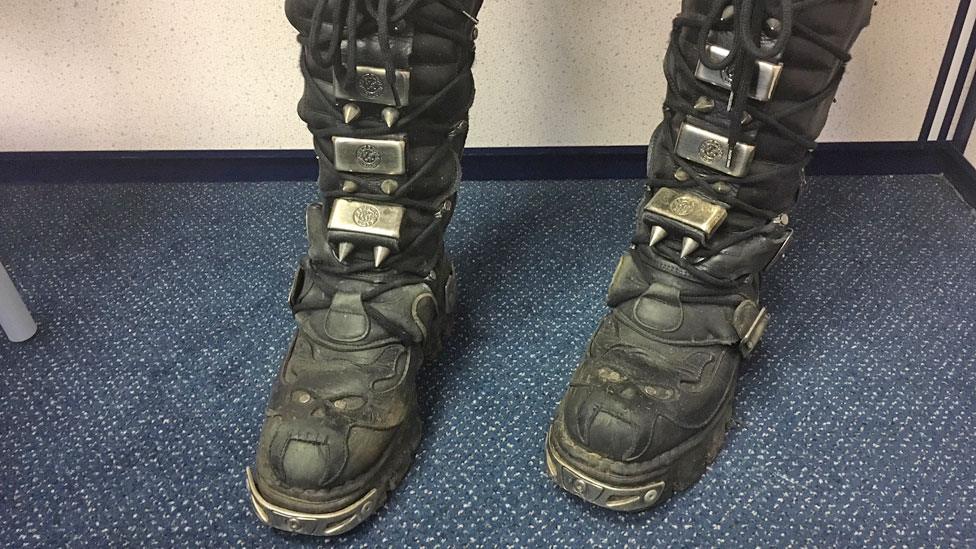Why shouldn't I be autistic and a student?
- Published

"We face a lot of injustices". Hannah Khan describes the battle to be a student with autism
Getting into university is a challenge, but imagine if you'd also been told you shouldn't even be in mainstream education.
Hannah Khan, a high-achieving first year student at the University of Bath, has had to battle against other people's preconceptions about her autism.
"I worry that there are a lot of autistic people who are scared of university, who get pushed down a route they don't want to go down," she says.
Hannah says being autistic at university can be "very tough" - but she is keenly aware that many autistic people don't even get the chance and are consigned to low achievement and low expectations.
The university says that fewer than one in six autistic adults are in full-time jobs - and even those who have work can be stuck in roles that are far below their ability.
Hypersensitive
Getting qualifications - Hannah is studying for a computer science degree - is an important step for staying in control of her future.
But she says she was very hesitant about applying to university.
"I'd been to a lot of things where you get pushed around as the 'autistic person'," she says.

The University of Bath's efforts at inclusivity include helping students with autism
But a summer school, part of the inaugural intake of Bath's Gold Scholar project for widening participation and inclusion, convinced her that "university was something I could definitely do".
She doesn't sugar-coat how difficult it can be.
Hannah has a diagnosis of Asperger's syndrome and her form of autism makes her hypersensitive to noise and touch.
"If someone tapped me on the shoulder it would feel like a burning sensation. It's really unpleasant and horrible.
"If there were loud and sudden noises, I'd be anxious and startled. It sends waves of panic through me.
"People look at you in a confused way - they don't understand the sensitivity. They don't understand why I jump away and freak out."
'Irrational fear'
There are other times where she can't control her reactions, such as if a plate she was eating from had dirt on it.
"I have an irrational fear of that I can't overcome."
Hannah describes her communication with other people as "very complicated".

Hannah is part of the inaugural year of a scholarship scheme at Bath for widening participation
"I can't talk in a group setting and sometimes it just falls apart a bit. The words are in my head and the language is there, but there's a kind of break between that I can't seem to cross."
But she wants other people with autism to recognise that university is not out of reach - even though it's a challenge.
"I don't want to be the person saying university is perfect, because realistically it's tough.
"In freshers' week, when everyone is out getting to know each other, you're sat there thinking 'I don't know if I can talk to all these people'.
"But if you have the willpower and drive to succeed and you're willing to accept support from the university, you can definitely make it."
'Patronised'
Navigating social situations can be uncomfortable or "overwhelming".
"Being autistic in university, you do feel very patronised by most people. But I've learned to accept that and think that's how things are going to be, which is a shame."
Hannah says she often feels "disconnected" and misses out on social activities, when other students assume she wouldn't want to come along.
For her, saying hello to people and getting to know them means a huge emotional effort. But this isn't always recognised and she says she can be left silently "hurt".
Hannah says universities need to have specialised, psychiatric and psychological support for autistic students who might have many different and complex needs.

JP Morgan is working with the university to help autistic students get graduate-level work
She questions whether conventional counselling or mentoring is going to be adequate.
There has been a growing awareness of the wide range of people on the autistic spectrum.
Hannah says she comes across people with autistic traits, but who might not have been diagnosed, particularly women.
"Girls are definitely better at hiding it. They might get missed," she says.
"A lot of people who don't get diagnosed, almost don't want to be diagnosed. They don't want a diagnosis because it's a bad thing. But it's a step towards getting help."
Metal fan
Hannah was diagnosed when she was aged 14.
"I didn't know what it meant. All you've got on the internet are things saying how negative it is, how I'll have trouble for the rest of my life."
She was later told she shouldn't be in mainstream education. "But I stayed and that's why I'm here."
Her ambitions also defy any stereotypes. She'd like to play in a metal band - and she says despite her sensitivity to noise, if she's making her own music, it doesn't affect her.

Despite her sensitivity to noise, Hannah is a fan of metal music
Her band - Synthetic Mutations - has recently disbanded, but she still wants to get back to making music.
She is candid about her difficulties - "I'm not that great at reading people - I don't remember faces."
But she is also clear about her own abilities and that she can understand problems with computing much more efficiently and accurately than most other people.
Such skills are sought after in the workplace - and the university has links with the finance firm JP Morgan, with a training scheme to help autistic people to find graduate-level jobs.
Hannah says she gets "upset" thinking about the other autistic people who have missed out on chances and have been patronised and sidelined.
"In a way we should band together. We face a lot of injustices."